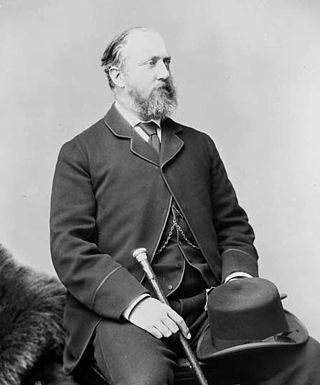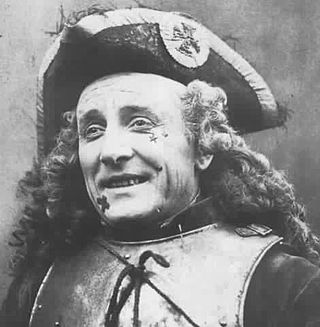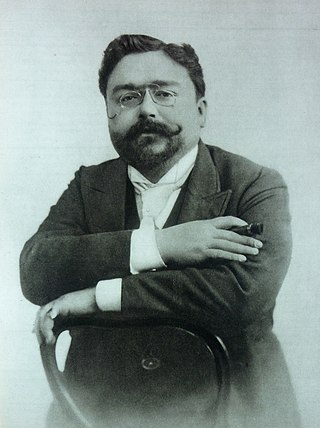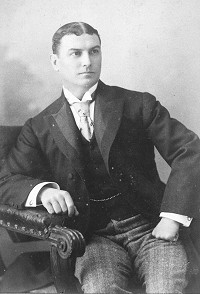Related Research Articles

Wolfgang Amadeus Mozart was a prolific and influential composer of the Classical period. Despite his short life, his rapid pace of composition resulted in more than 800 works representing virtually every Western classical genre of his time. Many of these compositions are acknowledged as pinnacles of the symphonic, concertante, chamber, operatic, and choral repertoire. Mozart is widely regarded as one of the greatest composers in the history of Western music, with his music admired for its "melodic beauty, its formal elegance and its richness of harmony and texture".

Don Carlos is an 1867 five-act grand opera composed by Giuseppe Verdi to a French-language libretto by Joseph Méry and Camille du Locle, based on the 1787 play Don Karlos, Infant von Spanien by Friedrich Schiller and several incidents from Eugène Cormon's 1846 play Philippe II, Roi d'Espagne. The opera is most often performed in Italian translation, usually under the title Don Carlo.

Frederick Arthur Stanley, 16th Earl of Derby, known as Hon. Frederick Stanley until 1886 and Lord Stanley of Preston between 1886–93, was a Conservative Party politician in the United Kingdom who served as Colonial Secretary from 1885 to 1886 and Governor General of Canada from 1888 to 1893. An avid sportsman, he built Stanley House Stables in England and is famous in North America for presenting Canada with the Stanley Cup, the championship trophy in ice hockey. Stanley was also one of the original inductees of the Hockey Hall of Fame.

Lillian Russell was an American actress and singer. She became one of the most famous actresses and singers of the late 19th and early 20th centuries, praised for her beauty and style, as well as for her voice and stage presence.

Edward Solomon was an English composer, conductor, orchestrator and pianist. He died at age 39 by which time he had written dozens of works produced for the stage, including several for the D'Oyly Carte Opera Company, including The Nautch Girl (1891). Early in his career, he was a frequent collaborator of Henry Pottinger Stephens. He had a bigamous marriage with Lillian Russell in the 1880s.

Dorothy is a comic opera in three acts with music by Alfred Cellier and a libretto by B. C. Stephenson. The story involves a rake who falls in love with his disguised fiancée.

Travers Edmund Vale, born Solomon Flohm, was an English-born silent film director. Raised primarily in Victoria, Australia, he worked as a photographer, playwright and theatre manager there and in New Zealand prior to his career in film. Early in his career, he was known by the name S. F. Travers Vale under which name he authored his first known play, The Mystery of a Hansom Cab (1888) which is an adaptation of the 1886 novel of the same name by Fergus Hume. He established his own theatre troupe, The Travers Vale Dramatic Company, which was in residence at the Theatre Royal, Adelaide in 1889 and the Auckland Opera House in New Zealand in 1890. In 1892 and 1893 he was the business manager of the American husband wife magician team of Charles N. Steen and Mrs. Steen.

Toole's Theatre, was a 19th-century West End building in William IV Street, near Charing Cross, in the City of Westminster. A succession of auditoria had occupied the site since 1832, serving a variety of functions, including religious and leisure activities. The theatre at its largest, after reconstruction in 1881–82, had a capacity of between 650 and 700.

Ludwig Minkus, also known as Léon Fyodorovich Minkus, was an Austrian composer of ballet music, a violinist and teacher of music.

Frank Wyatt was an English actor, singer, theatre manager and playwright.

Pepita Jiménez is a lyric comedy or comic opera with music written by the Spanish composer Isaac Albéniz. The original opera was written in one act and used an English libretto by Albéniz's patron and collaborator, the Englishman Francis Money-Coutts, which is based on the novel of the same name by Juan Valera. The opera was later adapted several times, first by the composer and later by others, into numerous languages and different constructs, including both a two-act version and a three-act version.

Havana is an Edwardian musical comedy in three acts, with a book by George Grossmith, Jr. and Graham Hill, music by Leslie Stuart, lyrics by Adrian Ross and additional lyrics by George Arthurs. It premiered on 25 April 1908 at the Gaiety Theatre, London, starring Evie Greene as Consuelo, W. H. Berry as Reginald Brown, Lawrence Grossmith as Don Adolfo and Mabel Russell as Pepita. A young Gladys Cooper was in the chorus.

Henry Bracy was a Welsh opera tenor, stage director and opera producer who is best remembered as the creator of the role of Prince Hilarion in the Gilbert and Sullivan comic opera Princess Ida. Bracy often played the leading tenor role in the works in which he appeared, becoming one of the most popular comic tenors of the Victorian era. His wife, Clara, was an actress.

Anna Laura Fish, better known by the stage name Laura Don, was an American actress, stage manager, playwright and artist who died from tuberculosis while still in her early thirties. She wrote the play A Daughter of the Nile, that found its greatest success after her death, and was the mother of the writer Glen MacDonough.
Alfred Thompson was a British musical theatre librettist, set designer, costume designer, theatre manager, journalist and artist, contributing to Punch and Vanity Fair.

Laura Joyce Bell was an English-American actress and contralto singer mostly associated with Edwardian musical comedy and light opera.

Jennie Lee was a Victorian Era English stage actress, singer and dancer whose career was largely entwined with the title role in Jo, a melodrama her husband, John Pringle Burnett, wove around a relatively minor character from the Charles Dickens novel, Bleak House. She made her stage debut in London at an early age and found success in New York and San Francisco not long afterwards. Lee may have first starred in Jo around 1874 during her tenure at San Francisco's California Theatre, but her real success came with the play's London debut on 22 February 1876 at the Globe Theatre in Newcastle Street. Jo ran for many months at the Globe and other London venues before embarking for several seasons on tours of the British Isles, a return to North America, tours of Australia and New Zealand and later revivals in Britain. Reduced circumstances over her final years forced Lee to seek assistance from an actor's pension fund subsidised in part by proceeds from Royal Command Performances.

Violet Melnotte, was a British stage performer, actress-manager and theatre owner of the late 19th century and early 20th century. She was the wife of Gilbert and Sullivan performer Frank Wyatt, whom she met when they both appeared in the hit operetta Erminie.

Josefa Embil Echániz better known as Pepita Embil was a Spanish Basque soprano who starred in zarzuela and operetta productions throughout Spain and Latin America. Known as the "Queen of Zarzuela," she is especially remembered for her son, the internationally famous operatic tenor Plácido Domingo, whose early career she helped to nurture. Embil began her professional career singing as a soloist in choirs, including the Basque national choir, Eresoinka, which based itself in France during the Spanish Civil War. While still in her twenties, she appeared in the world premieres of several new zarzuelas. She collaborated with some of the most prominent Spanish composers of the 1940s, including Federico Moreno Torroba, Jacinto Guerrero, and Pablo Sorozábal. In late 1948, she moved to Mexico with her baritone husband, Plácido Domingo Ferrer. In Mexico they ran a successful zarzuela company of their own, which toured throughout the Americas. Over the course of her career, Embil made several recordings, primarily of zarzuela music.
Frederick Charles Solomon, sometimes given as Fred Solomon or Frederic Solomon, was a British-born American composer, conductor, actor, librettist, playwright, theatre director, and multi-instrumentalist. After studying music at the School of Military Music, he began his career playing the cornet and acting in Britain before emigrating to the United States in 1885.
References
- 1 2 "Union Square Theatre", The New York Times, March 17, 1886, p. ?? Retrieved 6.27.13
- ↑ Jeffers, Paul. Diamond Jim Brady: Prince of the Gilded Age, 2002, p. 59. Retrieved 6.27.13
- 1 2 The Theatre. Theatre Publishing Company. 1886. p. 150.
- ↑ Brown, Thomas Alston. A History of the New York Stage, 1903, p. 176. Retrieved 6.27.13